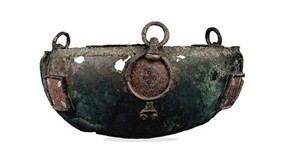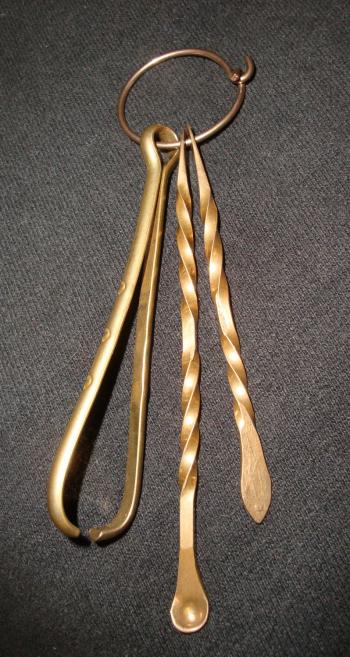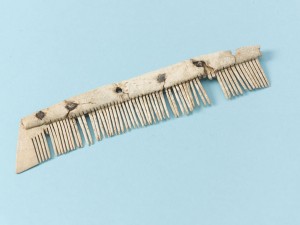We tend to think that the majority of the people that came before us were dirty and smelly – maybe with the exception of the Romans and their bath houses. Was this true of the Anglo-Saxons? What evidence is there of their bathroom habits?
One item which has been found in many burial sites from the pagan era (roughly 5th to 8th centuries) are sets of usually bronze or sometimes bone consisting of usually 3 items. There were tweezers for cutting nails or removing unwanted hairs, little spoons for scooping wax from your ears and picks for removing dirt from behind the finger nails.
So they seemed to bother about their nails. They also took care of their hair. Many combs have been found in graves and these are usually made from bone, antler or horn.
What about bathing and washing? Well it seems that the Saxons were not regular practitioners of whole body immersion. Even so they would bath a few times a year and particularly when they got married. They would also use baths as a medicinal method. This is shown by recipies in Bald’ Leechbook (a collection of Anglo-Saxon cures), For example Oakbark used in baths to ease aching thighs. he also refers to the herb Lion’s foot, baths of which can help a “bewitched” patient.
Whilst whole body bathing was less commonly done, washing of the hands and feet though was done daily and usually they would wash hands before a meal. Indeed the washing of hands at the start of a feast was it seems part of the ceremony. The Sutton Hoo burial included a fine bowl which would have been suspended from chains an in which all guests would be invited to wash their hands before eating – a sensible precaution given the fact that you were often eating with by your hands and taking food from common bowls and plates.
 Even though the Anglo-Saxons might not bathe that often they were very familiar with a huge range of plants and herbs – like Rosemary and Lavender which have strong aromas and could be used when washing one’s hair, clothes or hands or just around the house to fragrance it.
Even though the Anglo-Saxons might not bathe that often they were very familiar with a huge range of plants and herbs – like Rosemary and Lavender which have strong aromas and could be used when washing one’s hair, clothes or hands or just around the house to fragrance it.
So in conclusion they may not have been as clean and well groomed as modern tastes may prefer but I am sure that they would not have stunk to the extent that we might expect.




Related Articles
No user responded in this post